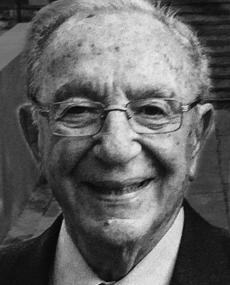
Ben Turok
Leading member of the South African Congress of Democrats (CoD). He was born in Latvia in 1927 and came with his family to South Africa in 1934. After graduating from the University of Cape Town in 1950, he worked as a surveyor and a lecturer at a London Polytechnic Institute. Returning to South Africa in 1953, he joined the COD and in 1955 became its secretary for the Cape western region, acting as a full-time organiser for the Congress of the People. He was arrested for treason in 1956 and stood trial until charges against him were withdrawn in 1958. Although served with a banning order in 1955, he remained active as a trade union organiser and was elected unopposed to represent Africans of the Western Cape on the Cape Provincial Council 1957.
Turok was one of the contributors to the Freedom Charter held at Kliptown, Johannesburg in 1955.
He became national secretary of the COD in 1958, and served for a period as secretary of the consultative committee of the congress alliance. His wife, the former Mary Butcher, was also prominent member of the COD and later served a six months' sentence for aiding the illegal ANC. During the 1960 emergency, Turok evaded arrest and went underground to help re-establish Congress activities. In 1962 he was convicted under the Explosives Act and sentenced to three years in prison.
After his release he was placed under house arrest but escaped via Botswana. After three years in Tanzania he moved with his family to Britain, where he was editor of Sechaba until 1972. He is now on the faculty of London's Open University, for which he wrote a lengthy study in 1975: "Inequality as State Policy: The South African Case." His writings also include "South Africa: The Search for a Strategy," in The Socialist Register 1973 and a booklet, Strategic Problems in South Africa's Liberation Struggle: A Critical Analysis (1974).
Prof Turok obtained three degrees, in engineering, philosophy and political science. He authored about 20 books on Africa’s development economics and politics. He lectured on political economy at various African universities. He also taught at the Open University in the UK, and at the University of Zambia. He was a visiting professor at the University of KwaZulu-Natal.
He served as a long standing Member of Parliament of the African National Congress (ANC) was director of the Institute for African Alternatives and editor of the journal New Agenda.
Professor Ben Turok died on 9 December 2019, in Cape Town, Western Cape, South Africa.